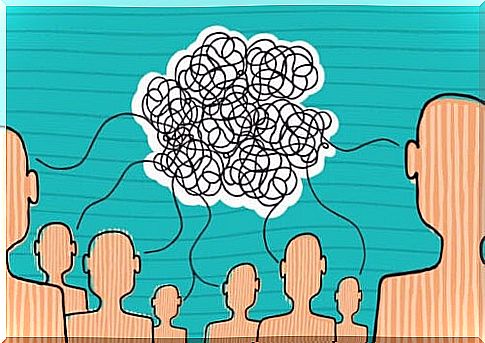The Difference Between Opinions And Knowledge

New information technology has become an integral part of our modern lives. Little by little, it has transformed our education and the way we learn. Today, the Internet is its own universe, and our use of the Internet on tablets, smartphones and social media platforms is changing and influencing our opinions. But should we put so much emphasis on everyone’s opinions? What is the difference between opinions and knowledge?
At this point, the so-called “knowledge society” should take advantage of the enormous and endless information that the Internet provides. We should all be able to communicate better, have informed opinions and reach higher levels of intellect.

Everyone has the right to their opinion, even if it is based on bad information
Philosopher and author Umberto Eco was an ardent critic of what he called the “society of ignorance.” In his latest book, From Dupidity to Insanity , he collected a selection of newspaper articles that discussed society, the Internet and the future of education and writing.
It is an analysis of modernity from the perspective of the events themselves and the main characters’ behavior. Eco talks about various news, TV series and political issues with a humorous and sarcastic tone.
The subtle difference between opinions and knowledge
Many experts have reflected on these two concepts. They may seem very similar, but if you dig a little deeper, they have significant differences. Because, while an opinion is usually based on solid knowledge, the concepts are different. Classical philosophers such as Plato and even writers such as Kierkegaard have an important influence on contemporary thought on these topics.
On the one hand , Plato already distinguished between these two concepts in antiquity when he spoke of a just society or a city. Plato claimed that those who were content with superficiality (colors and shapes) never attained true knowledge. The person who can observe these figures and characters and turn them into ideas, however, will understand their context.
Kierkegaard, the great thinker of the 19th century, argued in his book Two Ages that the only way to acquire knowledge is through silence. The philosopher suggested the idea that you must first know how to listen, pay attention and stay focused. Then you have to go deep into the thought without giving your opinion.
Despite centuries of history and thoughts that separate these two thinkers, they set up a useful framework for understanding the context we are in today – our community of opinion. While it is true that truth is often relative, knowledge is absolute, after all. If you do not value it, you must put opinions and individual self-expression above pure knowledge.

Less talk and more silence so we can listen to those who know
This was the main argument of Manuel Gil Anton, professor at the Center for Sociological Studies at COLMEX (College of Mexico), in a discussion on education reform last year. During the debate, the participants talked a lot about the importance of giving a voice to those with relevant knowledge. After all, it will be those who have the best opinions. Only then can we have a fairer society and a sense of collective well-being.
In 2012, Professor Charles Simic defined our society as “the time of ignorance” in the New York Review of Books . In his article, Simic talked about realizing how much of the population believed that Obama was a Muslim. He concluded that we have “A rebellion from a dull mind against the intellect. That is why they love politicians who criticize teachers who indoctrinate children against their parents’ values and detest those who show the ability to think seriously and independently “. He also said that “Stupidity is sometimes one of the greatest historical forces.”









